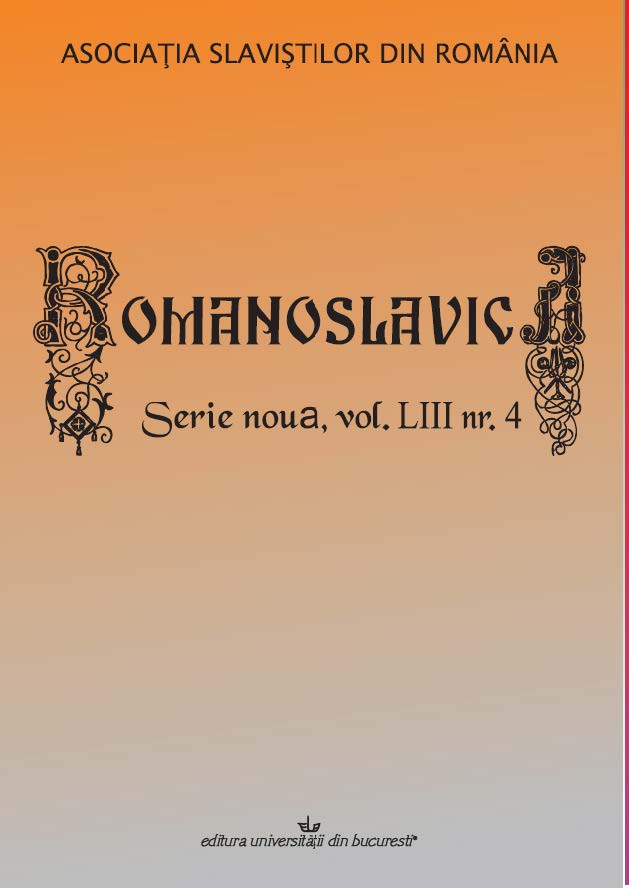Petru Caraman – profilul unui mare slavist
Petru Caraman - the profile of a great Slavist
Author(s): Livia CotorceaSubject(s): Comparative Linguistics, Philology
Published by: Editura Universităţii din Bucureşti
Keywords: ethnologist; Slavic scholar; comparative method; southeastern and Balkan customs and folklore; Russian studies;
Summary/Abstract: Petru Karaman is known as one of the greatest ethnologists and folklorists in our culture, but few people know that, in fact, he is a Slavist of the same size, although some Romanian Slavic scholars denied this clear reality. And the truth stands before our eyes - Petru Karaman could not have become such a deep and comprehensive ethnologist and folklorist if he had not been a great Slavic scholar. The scientist himself directs us to such an idea when he chooses the comparative method as his main method of studying folklore and different traditions, the main application area of which is mainly the southeastern and Balkan part of Europe, where so many Slavic peoples live. And this fact presupposes knowledge not only of the ethnographic and folklore material of this area, but of history, culture and languages, in their historical, dialectal and modern form. Such a multifaceted knowledge is characteristic of our scientist, who defended his doctoral dissertation in Poland on the theme of caroling in Romanian and Slavic traditions, traveled through the Slavic lands of southeastern Europe and the Balkans, collecting materials and reading in the great libraries of the visited countries for his future work. The presence of Petru Karaman at the Department of Slavic Studies at Jassy University from 1938 to 1947 does not stop his interest in ethnographic and folklore problems, the approach to which has confirmed his exceptional importance for European ethnographic, ethnological and folklore science since 1936. The period of professorship at the Jassy department of Slavic studies adds to the already meaningful and implemented by him research on Slavic ethnology and folklore studies and a significant contribution to Russian studies and general Slavic studies. In this sense, the professor's archives, much depleted during the war by the loss of the chest with the scientist's manuscripts, also contain unique research on the history of the alphabet, manuscript and printed books and culture among Russians, or lectures on the history of Russian literature and literary criticism. In all these areas, Petru Karaman shows himself to be a deep and original connoisseur, who analyzes these phenomena not only from the side of a representative of a different area of culture and civilization, but also from the side of a person free from familiar clichés used by Romanian and Soviet specialists of that time. In his works on Russian studies, a special place is also occupied by works on the translation of Russian literary works into Romanian, the issue of translation, in principle, attracting the special attention of our scientist. Finally, lectures and studies about the first homeland of the Slavs, about the history of connections between the Glagolitic and the Cyrillic, about Slavic-Romanian documents or about the art of manuscript among the Slavs, considered in a comparative perspective, multiply the motives of the idea of Peter Karaman as a great Slavic scholar, as well as of the printing by the publishing house of the Jassy University a special book in which we have collected all the above problems.
Journal: Romanoslavica
- Issue Year: LIII/2017
- Issue No: 4
- Page Range: 89-110
- Page Count: 22
- Language: Romanian

